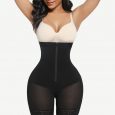
Water makes up 96.54% of the entire world and plays a huge part in our daily lives. But did you know that there are two types? Hard water and soft water are more different than some people think and choosing between them can affect your health and home.
In this article, we look at the differences between hard water vs soft water.
Continue reading to learn more about the pros and cons of each and why it matters.
Hard Water or Soft Water: The Difference
All water starts soft as it falls to the earth as rain. It becomes hard water when it gets filtered through the ground and into the waterways.
Signs of hard water include:
- A light film after washing your hands
- Spots on utensils
- Mineral stains
- Lower water pressure
Signs of soft water include:
- A thick lather when washing hands, clothes, and dishes
- Perfect water pressure
- Sodium aftertaste
Hard water and soft water both have advantages and disadvantages from drinking to cleaning. Below are some comparisons:
The Best for Drinking and Cooking
When it comes to drinking hard water vs soft water, neither is a health hazard and both are safe. Hard water has positive health benefits since it has magnesium and calcium. They can help in improving heart function and makes your water taste fresh.
Meanwhile, soft water can deprive people of vital vitamins and heighten sodium consumption. Cooking with soft water, however, works well. Soft water removes minerals that interfere with the flavor of the food, affect bread rising, or toughen vegetables.
The Effects on Your Skin and Hair
Hard water aggravates skin allergies and makes your skin feel dry and itchy. The minerals in hard water can alter the pH balance and absorb the natural moisture in your skin. You’ll have super dry skin and it can cause you skin irritations or rashes.
Soap does not work well with hard water. It is also harder to wash away shampoo and foam. Your hair will lose color faster in hard water and thins faster.
If you feel any irritating sensation following a bath, it’s time you get a water softener like Rainsoft.
The Effects on Your Plumbing and Appliances
When you heat hard water, calcium deposits can form. The higher the temperature of the water, the more solid buildup over time. If you have very hard water, your water heater may begin to make popping sounds.
The popping noise is a result of calcified rocks that start to crack and stretch. It will start to wear and tear your appliances. Then it builds up on your plumbing and fixtures.
The hard water can clog your pipes, decrease water pressure, and cause significant repairs. Soft water can pass through your plumbing fine. It doesn’t react to heat and it won’t make any rocks.
The Best for Your Laundry
Using hard water can be frustrating to use for your laundry. It makes your clothes feel stiff, scratchy, and dingy. Hard water can fade the colors and wear out the clothes.
You might even find mineral stains that act as a sticky attractant for more dirt. When you mix soap and hard water, it can produce a dreaded substance called soap scum. Use soft water to eliminate all those problems as it is ideal for cleaning.
Which is Better: Hard Water vs Soft Water?
Now that you know the difference between hard water vs soft water, you can choose one or use both. We hope you enjoy the article.
Don’t forget to leave a comment below to let us know your opinions. Check out our other home and lifestyle blogs for more informative guides right here.




